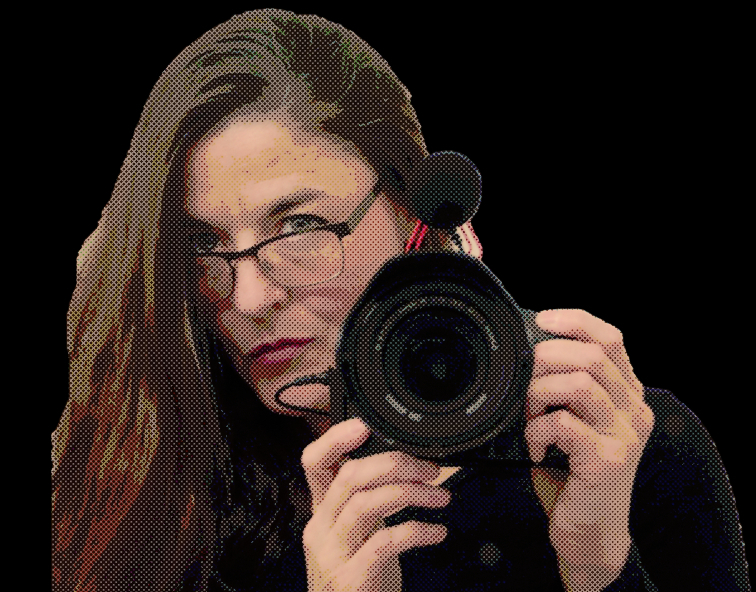
Every story starts with a “what if” idea: What if a teen girl with chronic depression woke up one day with psychic powers? What if Germany had won World War II (…you see this one a lot)? What if we found out aliens had been secretly colonizing Mars for hundreds of years? What if a young boy with two progressive dads and thick glasses moved to the Deep South? What if I lightly fictionalized my own life story (…I wouldn’t advise this one, tho—most authors overestimate how interesting their lives are to other people)?
If you’re seriously considering writing a book, then you probably already have a grand what-if idea you plan to base your story around.
But here’s the thing—not all what-if ideas are worth writing about. Personally, I have a bunch of what-if ideas floating around in my head at any given time; this is almost certainly true of most professional authors. Picking the right what-if idea to invest your time and energy into is the real challenge.
So how can you tell if your what-if idea is worth writing a whole book about? Well, let me explain!
First, you need to decide if you’re primarily writing for love or money. When I say writing for love, I mean you’re writing for your own enjoyment alone and you don’t care whether it gets published and you make money or not. In that case, you can write whatever you want and none of this writing advice matters. Go nuts!
When I say writing for money, I mean writing with the intention of publishing the book and having other people who aren’t your friends and family read it. You still might not make any significant money—in fact that’s standard, unfortunately—but your goal is to be paid something for your work. My advice below assumes you’re writing for money, i.e. to get published.
Here’s how to tell if your what-if idea is worth writing a whole book about:
- Does it fit neatly into one primary genre?
Too many newbie authors can’t figure out what genre their story is. If that’s the case, then it’s already DOA. See my post on genres for more info. You can have elements of other genres, but one should be primary. For instance, “What if we found out aliens had been secretly colonizing Mars for hundreds of years?” is clearly sci-fi. “What if Germany had won World War II?” could be speculative fiction, fantasy, paranormal, or sci-fi, depending on how Germany won WWII—did the Allies lose on D-Day in this alternate reality (spec-fiction)? Did they find alien technology that gave them the edge (sci-fi)? Did the Devil help them (paranormal)? Make sure you’re willing to stick to the universal tropes of whichever genre you pick; otherwise, you significantly reduce your story’s appeal (more on that below).
- Can you create an actual story from your idea?
This is where most people get stuck. A cool “what if” idea doesn’t necessarily produce an interesting story. You don’t need to map out the whole plot. Simply apply your what-if idea to an individual person’s situation and see if it goes anywhere.
To do that, take this definition of a story and fill in the blanks: “A story is about [someone] who [wants something], and what they’re [willing to go through] to get it.” Who’s the someone? What do they want? What will they go through?
For instance, let’s say your what-if idea is “What if Germany made a deal with the Devil to win World War II (this would fall into the paranormal genre)?” You could decide your “someone” is a young naïve Nazi officer in modern-day Germany, who discovers the truth about the deal with the Devil and decides to undo the deal (the “want”), but will have to fight through powerful Nazi leadership and demonic forces to get it (what he’s “willing to go through”). This story has potential; there’s a clear narrative arc implied. Now you’re getting somewhere!
Here’s an example of a what-if idea NOT worth pursuing: let’s say your what-if idea is “What if I lightly fictionalized my own life story (this would probably fall into the general fiction genre…already a bad place to start)?” The “someone” is a fictionalized version of yourself, obviously. But what does this person want? To get through life? That’s not a desire that’ll drive an entire novel; it’s not specific enough. And what will they need to go through—what stands in their way? Society? Mean parents? Both are weak conflicts unless applied to very specific circumstances…which is hard because real life is kinda boring, let’s be honest. This is why writing a fictionalized story about your own life is probably a waste of your time, unless you focus on a very specific, extraordinary aspect of your life—like clawing your way out of poverty or drug addiction or something—and even then you’d probably have more success with a straight-up memoir.
- Can you stick to the genre tropes?
Every genre has universal tropes that readers expect when they sit down with a story. Can you adhere to those tropes? If you can’t, then you’re shrinking your potential audience and you should probably change genres, or abandon the what-if idea altogether.
For instance, for the WWII Nazi-Devil pact example above, as a paranormal story, there should be a heavy emphasis on worldbuilding—i.e. how the world operates since the Nazis won, and how the Devil fits in—and a detailed explanation of the paranormal element—i.e. how this deal came to be, and how it can be broken since that’s the protagonist’s goal. If you find all that worldbuilding tedious—let’s say you’re way more interested in the main character’s inner life and personal struggles under fascism—then you should probably drop the whole Devil part and switch to the speculative fiction genre. However, since speculative fiction isn’t a good place to start for debut authors, and you really want some kind of traditional publishing deal, then you should probably bag this what-if idea altogether. Revisit the idea after you have an established fan base.
- Does the story born from your what-if idea stand out from the crowd? Can you kick it up a notch?
It’s true that there are no completely “new” stories, just new takes on the classics. Most what-if ideas aren’t unique; it’s your spin on the story that will make it stand out. So does your what-if idea allow you to tell a new, exciting story? Or do you end up with a retread of an idea that’s been done to death, too derivative of what’s come before, or something that’s just not that interesting?
Again, let’s consider our “What if Germany won World War II?” example. This general idea has been done a bunch of times before, so you need to have a unique take on it in order to entice readers (or agents) to take notice. If your WWII Nazi-Devil pact story ends up being another version of Hellboy, then you should probably scrap the idea and move on to greener pastures.
Along these lines, does your what-if idea give you something to say about the world? Good stories have tight plots and interesting characters; great stories also have something to say. Can you use your story about Germany winning WWII with the help of the Devil to make a larger point about the roots of fascism? What-if ideas that can be imbued with multiple layers are the best ones.
- Is your what-if idea NOT a problem magnet?
By “problem magnet” I mean an idea that will inevitably court a lawsuit or unwanted controversy. For instance, if your what-if idea is “What if Superman was evil and helped Germany win World War II?”, then DC Comics/Warner Brothers will eventually come a-knockin’ with a cease-and-desist order. Unless you stick strictly to fanfic (in which case you’re writing for love), don’t waste your time on fleshing out a what-if idea that involves any trademarks or real, living people who could sue you.
Also, avoid what-if ideas on touchy topics that could blow up in your face. For instance, “What if the South won the Civil War?” sounds like it could be a good idea for a story…but if you think about how you’d actually execute a story based on this premise, it involves showing lots of racism, graphic depictions of slavery, and probably a lot of white-savior stuff. That it so say, unless it’s done REALLY well, it’ll be torn apart as tone deaf and insulting. In fact, this very idea was going to be the basis for David Benioff and D. B. Weiss’ follow-up series to Game of Thrones, called Confederate. That’s right—two white dudes, who spearheaded a show featuring no black people, wanted to make a TV series centered on legalized American slavery. Great idea, bros. What could go wrong??? HBO wisely realized it would’ve been a fucking disaster and cancelled the thing, thank God. Don’t make the same mistake.
